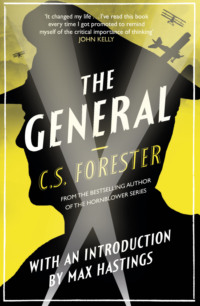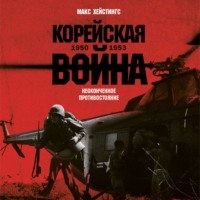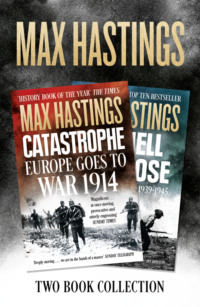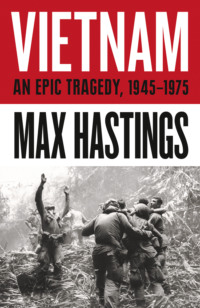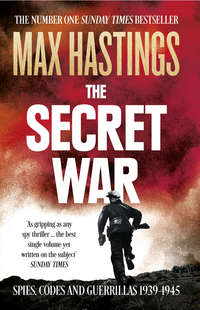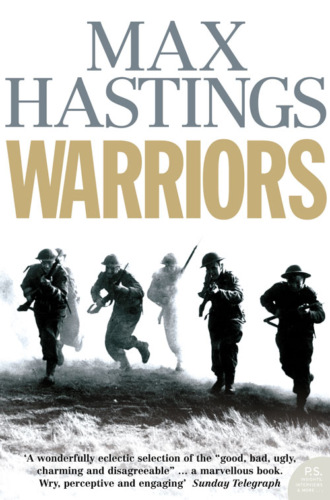
Полная версия
Warriors: Extraordinary Tales from the Battlefield

Warriors
Max Hastings


William Collins
An imprint of HarperCollinsPublishers Ltd.
1 London Bridge Street
London SE1 9GF
www.harpercollins.co.uk
This edition published by Harper Perennial 2006
First published by HarperCollins Publishers 2005
Copyright © Max Hastings 2005
Max Hastings asserts the moral right to be identified as the author of this work
A catalogue record for this book is available from the British Library
All rights reserved under International and Pan-American Copyright Conventions. By payment of the required fees, you have been granted the nonexclusive, nontransferable right to access and read the text of this ebook on screen. No part of this text may be reproduced, transmitted, downloaded, decompiled, reverse-engineered, or stored in or introduced into any information storage and retrieval system, in any form or by any means, whether electronic or mechanical, now known or hereinafter invented, without the express written permission of HarperCollins ebooks
This book is sold subject to the condition that it shall not, by way of trade or otherwise, be lent, re-sold, hired out or otherwise circulated without the publisher’s prior consent in any form of binding or cover other than that in which it is published and without a similar condition including this condition being imposed on the subsequent purchaser.
HarperCollinsPublishers has made every reasonable effort to ensure that any picture content and written content in this ebook has been included or removed in accordance with the contractual and technological constraints in operation at the time of publication
Source ISBN: 9780007198856
Ebook Edition © MAY 2010 ISBN: 9780007344109
Version: 2018-08-13
Praise
From the reviews of Warriors:
‘Brimming with great anecdotes…Hastings’s wonderfully readable book is going to make a lot of armchair soldiers very, very, happy. A damn good war story is always worth repeating, and few tell them better than Hastings’
Daily Mail
‘Hastings combines his consummate skill as a writer with passages of descriptive brilliance to provide a book for the ordinary citizen. His warriors are a mixed bag of unlikely combat survivors, their deeds graphically portrayed and their character flaws vividly described. He captures the commitment of the fighting servicemen and women, loyally executing the policy of the government of the day, in language that is powerful yet eminently comprehensible. This is a book to entertain’
Sunday Times
‘A marvellous book. Wry, perceptive and engaging, it lays bare the curious mix of character traits – good and bad – that a successful warrior requires’
Sunday Telegraph
‘Hastings has distilled more than 40 years of study and personal observation into 15 illustrative portraits…This is an “entertaining rather than academic story”; the aim is to “amuse as much as to inform”. As ever, Hastings does both’
Guardian
‘Clear, decisive, forceful…Bristling with action and laconic dialogue, Warriors…will enthral’
Daily Telegraph
‘With this collection, Hastings is back on home territory, where he can bring his unique blend of skills as war reporter, and social as well as military historian to bear…This is one of the best and most diverting of his shorter pieces’
Evening Standard
‘All [of the stories] are corking…Opinions are stated firmly and with big bold swings of the pendulum. His virtues are clarity and decisiveness – greatly to be admired when it comes to making clear, for the lay reader, roughly what is going on in the fiendishly complex and bloody engagements he describes’
Spectator
‘Warriors is a timely reminder of how magnificently people can behave in war. I hope that not only will it become required reading in our military academies but that it will be found by our bedsides for many years to come’
The Field
Dedication
For Professor Sir Michael Howard, CH, MC,
sometime warrior, evergreen teacher.
With affection and admiration, as always
Table of Contents
Title Page
Copyright
Praise
Dedication
Introduction
1 Bonaparte’s Blessed Fool
2 Harry and Juana
3 Professor of Arms
4 The Lazy Engineer
5 Colonel Fred
6 Gentleman-of-War
7 Most Private Soldier
8 The Killer
9 An Indian Odyssey
10 The Dam Buster
11 Hollywood Hero
12 Slim Jim
13 The White Mouse
14 Freedom’s Young Apostle
Epic on the Golan
Keep Reading
Afterword
Sources and References
Index
About the Author
By the Same Author
About the Publisher
Introduction
THIS IS AN old-fashioned book, or at least a book about old-fashioned conflicts, because it concerns people rather than ‘platforms’, that unlovable contemporary synonym for tanks, ships, planes. It addresses the experience of some remarkable characters who made their marks upon the wars of the past two centuries. Like the rest of us, they were variously good, bad, ugly, charming and disagreeable. This study will be of no interest to such modern warlords as US defense secretary Donald Rumsfeld, because it addresses aspects of conflict they do not comprehend, creatures of flesh and blood rather than systems of steel and electronics.
In civil life, people with a penchant for fighting are deemed at best an embarrassment, at worst a menace. Warriors are unfashionable people in democratic societies during periods of peace, as Kipling frequently remarked. Nelson liked to quote the seventeenth-century poet and pamphleteer Thomas Jordan’s epigram:
Our God and sailor we adore,
In time of danger, not before;
The danger past, both are alike requited,
God is forgotten, and the sailor slighted.
Yet all nations need warriors to pursue their national interests in conflict, to create disciplined violence within the harness of uniform. In times of war, fighting men are suddenly cherished and become celebrities – or at least did so until very recently. Few of those who experience battle emerge as heroes. Most, even if they have volunteered for military service, discover amid mortal peril that they prefer to act in a fashion likely to enable them to see home again, rather than to perform the sort of feats which win medals. This does not mean they are cowards. The majority do their duty conscientiously. They are reluctant, however, to take those strides beyond duty which mark out the men who win battles for their countries.
One of my favourite stories of the Second World War concerns a sergeant-major of the Green Howards, Stan Hollis. On D-Day, 6 June 1944, and in the battles that followed, three times Hollis attacked German positions which were holding up his battalion’s advance. He charged them alone, with sten gun and grenades, and killed or took prisoner the defenders. Many years later, his commanding officer reflected in my hearing upon the sergeant-major who, miraculously, lived to receive a Victoria Cross and keep a Yorkshire pub in his old age. The colonel said: ‘I think Hollis was the only man I met between 1939 and 1945 who felt that winning the war was his personal responsibility. Everybody else, when they heard there was a bloody awful job on, used to mutter: “Please God some other poor sod can be found to do it!”’
Every army, in order to prevail on the battlefield, needs a certain number of people like Sergeant-Major Hollis, capable of courage, initiative or leadership beyond the norm. What is the norm? It has changed through the course of history, dramatically so since the mid-twentieth century, with the advance of what passes for civilisation. Western democracies have not become more merciful towards enemies. Indeed, they use ever more terrible weapons to encompass their destruction. Western warriors, however, have become progressively more sensitive to risk and hardship, in a fashion which reflects sentiment in the societies from which they are drawn. A Greek or Roman soldier was required to engage in hours of close-quarter combat with edged weapons which hacked through flesh, muscle, bone and entrails. Modern firearms inflict equally terrible wounds, but by a much less intimate process. ‘Was this fighting?’ mused a First World War fighter pilot, V.M. Yeates. ‘There was no anger, no red lust, no struggle, no straining muscles and sobbing breath; only the slight movement of levers and rattle of machine-guns.’
The absence of physical exertion in the business of killing, which Yeates remarked as a novelty in 1918, has become more emphatic, indeed almost universal, for twenty-first-century warriors of the Western democracies, saving only some combat infantrymen. In the past, a soldier’s belief in the nobility of his calling stemmed in part from his acceptance of the risk of losing his own life while taking those of others. It would be wrong to overstate the degree of chivalry involved, for of course every warrior aspired to kill his enemy while he himself survived. But the acceptance of possible death – of a multitude of deaths on one’s own side, win or lose – was part of the contract, in a fashion that has vanished today. Low-intensity engagement with guerrillas continues to inflict painful losses on Western armies. If matters go to plan in such heavyweight operations as the invasions of Afghanistan and Iraq or the bombing of Kosovo, however, military objectives are achieved at negligible cost to the technological master power. Losses are substantial among the vanquished primitives, but questions are asked in Congress or the House of Commons if there are significant casualties among the victors. Any assumption of parity of human risk is long gone. We have returned to the rules of engagement which prevailed in nineteenth-century colonial conflicts: ‘We have got the Maxim gun and they have not’; or, in a twenty-first-century context, ‘We possess body armour impervious to small arms and tanks invulnerable to low-technology weapons.’
In the battles of Bonaparte’s era, an infantryman was expected, as a matter of course, to stand firm at his place in the square, line or column, loading and aiming his musket usually without the protection of trench or earthwork, while the enemy delivered volley fire against himself and his comrades from a range of thirty or forty yards. There was seldom any tactical provision for an individual to evade danger. When Wellington ordered his infantry to lie down during enemy bombardments, this was perceived as a controversial, possibly pernicious, innovation. For an individual combatant to earn from his peers the reputation of a brave man, he was obliged to exceed a norm which modern soldiers would consider intolerable. And since the wars of Bonaparte persisted for the best part of twenty years, many veterans were called upon to display a willingness to defy the terrors of the battlefield thirty, forty, fifty times in separate engagements.
The American Civil War required from combatants the same submission to massed fire as Bonaparte’s and Wellington’s soldiers experienced, the ordeals of Gettysburg and the Wilderness being rendered more terrible by improvements in weapon technology in the intervening fifty years. Although the clash of the states was much shorter in duration than the European wars earlier in the nineteenth century, it exacted by far the highest casualties of any conflict in the history of the United States, albeit many of them by disease.
The end of the nineteenth century marked the passing of a warrior ethic which had prevailed since earliest history, whereby war was deemed a proper source of amusement for the leisured classes, as well as of employment for the impoverished ones. As a war correspondent, the young Winston Churchill sounded a last hurrah for the gentleman adventurer in a characteristically exuberant despatch from Buller’s South African army in February 1900:
The soldier, who fares simply, sleeps soundly and rises with the morning star, wakes in an elation of body and spirit without an effort and with scarcely a yawn. There is no more delicious moment in the day than this, while we light the fire and, while the kettle boils, watch the dark shadow of the hills take form, perspective and finally colour, knowing that there is another whole day begun, bright with chance and interest, and free from all cares. All cares are banished – for who can be worried about the little matters of humdrum life when he may be dead before the night? Such a one was with us yesterday – see, there is a spare mug for coffee in the mess – but now gone for ever. And so it may be with us tomorrow. What does it matter that this or that is misunderstood or perverted; that So-and-so is envious and spiteful; that heavy difficulties obstruct the larger schemes of life, clogging nimble aspiration with the mud of matters of fact? Here life itself, life at its best and healthiest, awaits the caprice of a bullet. Let us see the development of the day. All else may stand over, perhaps for ever. Existence is never so sweet as when it is at hazard. The bright butterfly flutters in the sunshine, the expression of the philosophy of Omar Khayyam, without the potations.
A relatively small number of people enjoyed the conflicts of the twentieth century as much as Churchill had revelled in his adventures with, for instance, the Malakand Field Force on India’s North-West Frontier in 1897. World wars inflicted such horrors upon mankind that it became unacceptable for even the most enthusiastic warrior to avow them as entertainments, even if professional soldiers, sailors and airmen still welcomed the opportunities which they offered for swift advancement. A career officer whose progress from lieutenant to colonel might take twenty years of peacetime service could achieve the same leap in a couple of campaigns, given luck and ability. However, the majority of participants were unwilling civilians, conscripted into uniform to endure experiences they found uncongenial, even if they accepted a duty to endure them. Few citizen soldiers wrote home from North Africa or the Pacific with Churchill’s exuberant delight.
The most dramatic foreshortening of Western democratic man’s assumed quotient of courage, his expected tolerance of the circumstances of conflict, took place between the two world wars. In the 1914-18 encounter, infantrymen of all the combatant powers were required to accept a level of sacrifice Bonaparte’s or Grant’s soldiers would have acknowledged with respect. A generation later, in 1939-45, a consensus evolved among Anglo-American commanders that it was impossible again to make such demands upon their men. The manner in which campaigns were conducted, especially in north-west Europe, reflected an Allied preference for firepower rather than human endeavour, a tolerance of ‘combat fatigue’ or ‘battle exhaustion’ as a recognised medical condition, and a reluctance to persist with any course of action that entailed heavy loss.
However ghastly were some individual Western Allied experiences of the Second World War, only in the Japanese, Russian and German armies were demands routinely made upon the soldier comparable with those of earlier centuries. It might be observed that ‘fanatical’ enemy behaviour which roused the dismay, even revulsion, of 1939-45 American and British soldiers was no more than had been asked as a commonplace of their own forebears: a willingness to carry out orders likely to precipitate their own deaths. After 1918, the soldiers of the Western democracies in the Second World War were deemed to have grown more ‘civilised’, a cause of lamentation among their commanders. Senior American and British officers such as Patton, Brooke and Alexander, not to mention Winston Churchill, bewailed the fact that the men whom they led possessed less capacity for suffering than their fathers who bore arms in the Kaiser’s war. The norm had changed.
Yet in every society on earth, the most durable convention from ancient times until very recently was that which held physical courage to be the highest human attribute. For thousands of years, in societies dominated by the warrior ethic, this quality was valued more highly than intellectual achievement or moral worth. A.E.W. Mason’s classic adventure story The Four Feathers (1902), set in 1898, concerns a sensitive young army officer who resigns his commission because he prefers to stay in England enjoying country life with an adored fiancée, rather than accompany his regiment up the Nile to slaughter Dervishes. His girl joins brother officers in offering him a white feather for his ‘cowardice’. He is obliged to perform extraordinary feats of derring-do in order to recover her esteem. The story has always seemed to me flawed, because it requires the hero eventually to marry this foolish creature, who surely proved her unfitness as a partner for life by placing so high a premium upon brawn over brains, preferring to see her loved one immolate himself on a battlefield rather than indulge his poetic nature.
But The Four Feathers vividly reflected the values of its period. One consequence of mankind’s exaggerated regard for ‘pluck’ is that some remarkably stupid men, their only virtue a willingness to expose their own persons to risk, have been granted positions of responsibility on the battlefield, where their follies have cost lives. Bonaparte often over-promoted officers of high courage and small intelligence, whose headlong assaults upon the enemy cost the imperial army gratuitous slaughter. General Sir Harold Alexander’s gallantry, patrician manners and dashing appearance made him Winston Churchill’s favourite general. ‘Alex’ looked the ideal of a warrior. The prime minister was content to overlook the hero’s notorious laziness and lack of intellect.
A less exalted officer who showed himself ‘brave as a lion’, to quote a comrade, leading a battalion in north-west Europe in 1944-45 had to be relieved of a brigade command in Korea in 1951. His subordinates formally protested to the divisional commander when this committed warrior, adorned with two DSOs, proposed to launch his men in a frontal assault upon the Chinese. He failed to comprehend the new terms of limited war. The American writer Ambrose Bierce a century ago advised the ambitious professional soldier: ‘Always try to get yourself killed.’ Many of those who display a willingness to pursue this objective are, however, fools by the normal yardsticks of humanity. Courage is a desirable asset in a commander, but is usually fatal to the interests of his soldiers unless accompanied by some intellectual powers. British cavalry and its senior officers were flawed through most of their history, up to and including the Second World War, by an obsessive compulsion to charge. No warrior should be promoted to higher command merely because he is brave. A skilled and eager fighter is best rewarded by decorations rather than promotion. He should be retained in a role in which he can make himself useful in personal combat, rather than advanced beyond the merits of the rather limited gift – even for a soldier – of being good at killing people.
Yet it is hard to exaggerate the influence that displays of battlefield prowess have always exercised upon others, especially adolescents who are least equipped to perceive the worth of other virtues. As a schoolboy I read a book written in the 1920s, entitled Stirring Deeds of the Great War. Works of this nature were published in great numbers from Victorian times until, say, the 1960s. They depicted war as an extension of school sports, a grander and more splendid House Final, in which young men possessed of the right stuff could win their colours on a national pitch. They were designed to inspire new generations of Englishmen and Americans to emulate the feats of their forefathers, and often they succeeded. The illustrations in Stirring Deeds left a lasting impression upon the impressionable. I remember one captioned ‘Lieutenant Smyth’s terrible journey with the bombs’. It depicted a young officer lugging a box of grenades across no man’s land amid a storm of shot and shell, an episode following which he was awarded a Victoria Cross. In those days, the public perception of heroism was almost entirely related to feats of military prowess. Until at least the 1960s, warriors who had displayed conspicuous courage in one or other of the twentieth century’s notable bouts with the Germans were treated with high respect, even if their cheques bounced.
It may be argued that portrayals of war as ‘the great game’ prostituted courage for dubious nationalistic purposes, and so they did. Yet over the past thirty years or so, the word ‘hero’, surely one of the most precious in the language, has become debased in a different way. Public admiration once reserved for warriors has been transferred to sports stars and celebrities, many of negligible attainment. Martial courage has become far less esteemed in Western societies. In part, happily, this is because the need for it in wars of national survival has vanished. Less happily, however, it is because some people in the twenty-first century recoil from any celebration of military achievement.
In the tranquil times in which we are fortunate enough to live – with or without Al Q’aeda, our ancestors would consider our era uniquely privileged – there is a public yearning to make life safe. A corollary of this is a diminution of enthusiasm for those who embrace risk. Most of the people whose stories feature in this book would find our society’s quest for an existence without peril incomprehensible, unmanly, absurd. They would be amazed by the childlike and increasingly widespread belief that if governments do their business properly, even a soldier in war can be protected from harm.
It is welcome that popular perceptions of courage no longer embrace only, or even chiefly, achievement in battle. But it seems dismaying that the media, and thus the public, today blur the distinction between a victim, who suffers terrible experiences, and a hero. To any thoughtful person, a hero must be someone who consciously consents to risk or sacrifice his or her life for a higher purpose. The media, for instance, will describe a pilot who safely lands a crippled plane laden with passengers as ‘a hero’. A party trapped for hours in a cable car who return to terra firma without betraying visible moral collapse may well be dubbed heroic. In truth, of course, these people are merely passive victims of misfortune. If they behave well, they are doing so to save their own skins, and only incidentally those of other people. Anyone who has served in a theatre of war, even in a non-combatant capacity and even in as perfunctory an affair – from the Allied viewpoint – as the 2003 invasion of Iraq, is likely to be described in any subsequent media report of a divorce, car crash or fatality as a ‘war hero’. This is a travesty. Such a word as ‘hero’ deserves to be cherished as carefully as any other endangered species. Physical bravery is found more often than the spiritual variety. Moral courage is rare, and perhaps more common among women than among men. A willingness to defy peril comes remarkably easily to some young people. For millennia, this trait was systematically nurtured in them through ‘risk’ sports, with the implicit or explicit purpose of fitting them for war. Foxhunting, for instance, which requires high courage from a ‘thruster’, created the ethos of Wellington’s army much more than did the playing fields of Eton. Such a young man as Harry Smith of the Rifle Brigade joined the British Peninsular army having already tested his own courage over a thousand fences in the hunting field. This did not make him a better or more intelligent person, but it sent him to serve Wellington as a demonstrably brave one. It is no coincidence that today, when we no longer feel threatened by foreign enemies who must be confronted in battle, English socialists are spitefully committed to banning English foxhunting. The sport reflects a culture which they despise. The virtues which hunting has fostered for centuries seem to them redundant as well as barbaric.


